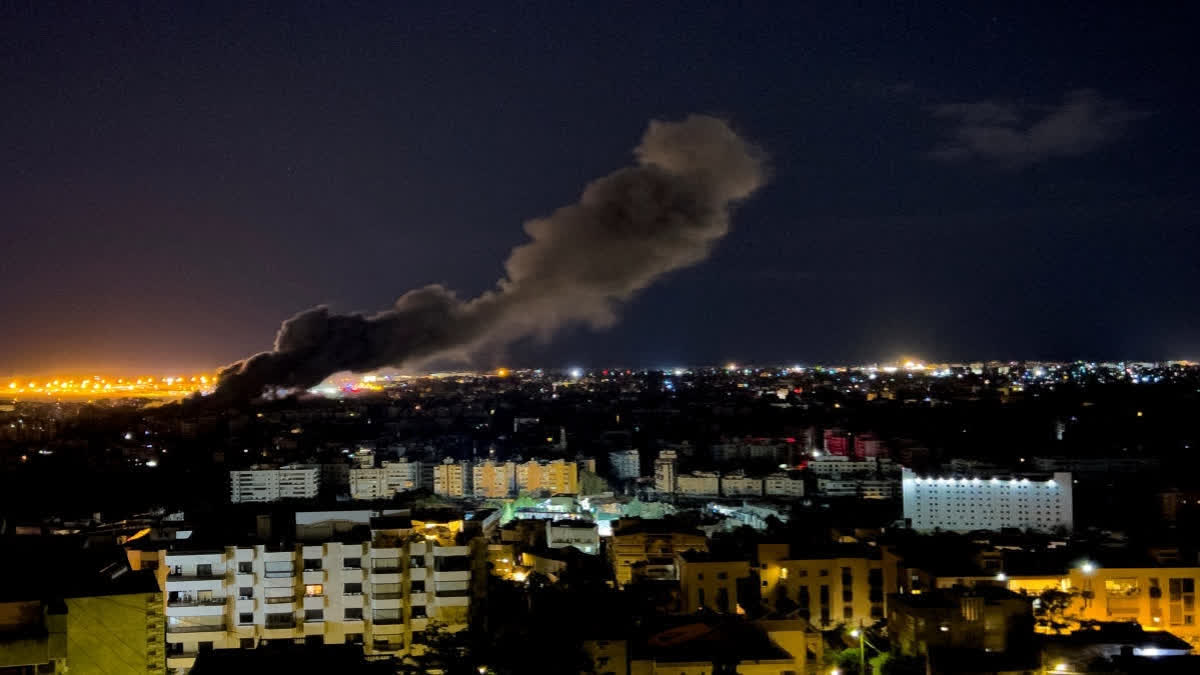Jerusalem: A year after the devastating attack by Hamas on October 7, Israelis find themselves united in the shared trauma of the event, yet deeply divided over the best path forward to resolve the ongoing conflict. The attack, which marked the deadliest day in Israeli history, has left a profound mark on the nation's psyche, prompting both solidarity and significant discord.
In the aftermath of the October 7 assault, a wave of national unity emerged. Volunteers mobilised to support soldiers and provide shelter to displaced individuals, fostering a sense of collective resilience. However, this shared grief has been overshadowed by a burgeoning mental health crisis, with the health ministry describing it as "the most serious mental health crisis in its history."
The trauma is compounded by the uncertainty surrounding Israeli hostages taken by Hamas during the attack. Out of 251 hostages, 97 remain in Gaza, with the situation of many others becoming increasingly dire. As announcements regarding hostages continue, the emotional toll on families and the wider community deepens.
Merav Roth, a psychoanalyst treating former hostages and families affected by the attack, highlighted the ongoing sense of insecurity among Israelis, stating, "This invasion of the home, individual, and collective is unprecedented in the history of Israel and terrifying for Israelis."
The scale of tragedy is staggering with over 1,205 people killed in Israel during the attack. In retaliation, Israel's military operations in Gaza have reportedly resulted in at least 41,455 fatalities, mostly among civilians, according to figures from Hama-run health ministry. The United Nations has verified these numbers, further illustrating the devastating impact of the conflict.
Despite the initial solidarity, public opinion in Israel has become increasingly polarised, especially following a brief truce in November that allowed for the release of 105 hostages. As the government navigates the complexities of military strategy and negotiations, disagreements over the approach to the hostages have intensified.
Protests have erupted in major cities like Tel Aviv, with demonstrators demanding, "Bring them home now!" These calls for action highlight the desperation felt by many families waiting for news of their loved ones.
However, the calls for negotiations with Hamas are met with opposition from others who fear that such discussions could weaken the government's stance and inadvertently empower the militants. Tamar Hermann, a senior research fellow at the Israel Democracy Institute, noted that the divide reflects broader political tensions in the country, particularly those stemming from PM Benjamin Netanyahu's controversial judicial reforms that had already polarised public opinion before the war began.
the conflict has also magnified existing tensions between secular and religious communities in Israel. Many secular Israelis are frustrated by the exemption from military service enjoyed by ultra-Orthodox Jews, especially in light of the high number of casualties among security forces since October 7.
The sentiment is echoed by those living in northern Israel, who feel increasingly abandoned by the state as they face threats from Hezbollah following the start of cross-border strikes shortly after the Hamas attack.
As the war rages on, residents in northern areas are grappling with the repercussions. Many have been displaced, with about 60,000 people still unable to return to their homes due to ongoing security concerns. Dorit Siso, a school teacher from Shlomi, shared her struggles, "I just want to go home. I don't care about the rockets."
Despite restrictions preventing her from returning to her hometown, she recently moved to a village in northern Israel, seeking some semblance of normalcy after what she describes as "the hardest year of my life."
The emotional landscape in Israel is complex and ever-evolving. While many are coming together in support of one another, the divisions regarding how to address the ongoing conflict and the fate of hostages continue to widen. As the country grapples with its painful past and uncertain future, the challenge remains to find a path toward healing and resolution in the face of profound loss and trauma.



